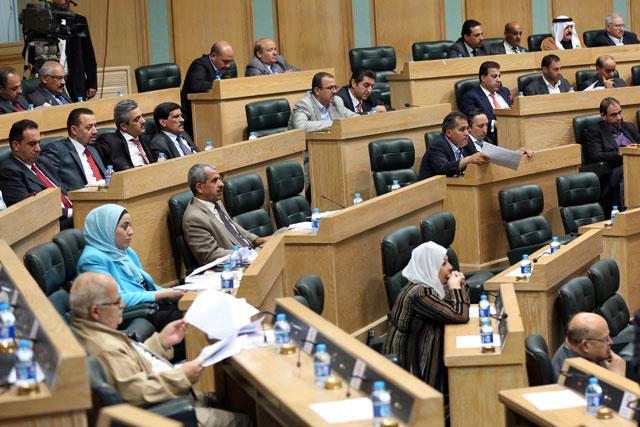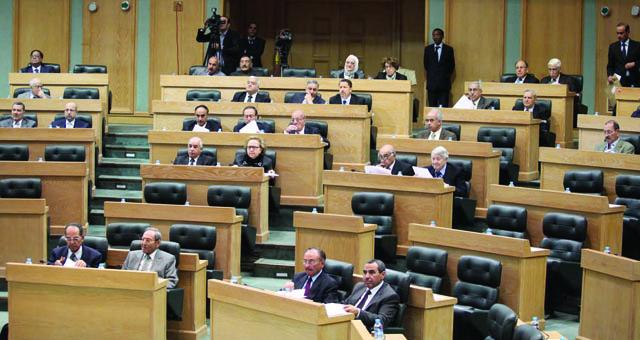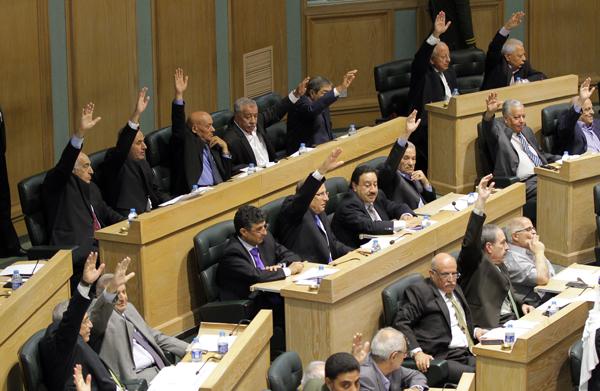You are here
Senators endorse laws on Arabic, cybercrime as referred by deputies
By Raed Omari - Apr 26,2015 - Last updated at Apr 26,2015

AMMAN — The Lower House on Sunday rejected the Senate's amendments to the draft prohibition of chemical weapons law, insisting on its previous decision to restrict the use of chemical agents for crowd control solely to tear gas.
Last week, the Senate rejected MPs' amendments to the bill, scrapping the whole provision that allowed the use of chemical agents for crowd control.
The Upper House insisted that all chemical agents, including tear gas, should not be used even in crowd control as MPs had proposed, saying the decision is aimed at bringing the law into harmony with the Convention on the Prohibition of the Development, Production, Stockpiling and Use of Chemical Weapons and on Their Destruction, which Jordan has ratified.
On April 8, the Lower House passed the bill, approving a proposal by veteran MP Abdul Karim Dughmi (Mafraq, 1st District) that reads: "Only tear gas in the form of grenades or aerosol cans and no other chemical agents shall be used by security bodies to control riots."
The law defines the use of certain chemicals not prohibited by the Organisation for the Prohibition of Chemical Weapons and the Chemical Weapons Convention, in addition to the measures that should be followed in importing, producing, stockpiling and destroying chemical agents.
The law also stipulates the formation of a national committee tasked with following up on Jordan's implementation of the terms set in the chemical weapons convention.
Also on Sunday, the Senate endorsed the 2014 draft law to protect Arabic as referred from the Lower House, according to a statement released by Parliament.
The law aims at safeguarding the language against “slang and foreign terms” in official agencies and state-run educational and media institutions.
The Upper House also passed MPs' amendments to the 2010 Cybercrimes Law.
As recommended by the Lower House, the Senate also rejected a set of agreements to explore and produce oil in Sarhan, Safawi and Azraq regions, the statement said.
Related Articles
The Senate on Thursday rejected the Lower House’s amendments to the draft prohibition of chemical weapons law, scrapping a provision allowing the use of chemical agents for crowd control.
AMMAN — Senators on Wednesday insisted on their decision to scrap a provision in the draft prohibition of chemical weapons law that allows t
AMMAN — The Senate on Sunday won its duel with the Lower House over the 2015 decentralisation law, earning women, in the outcome, a quota th

















